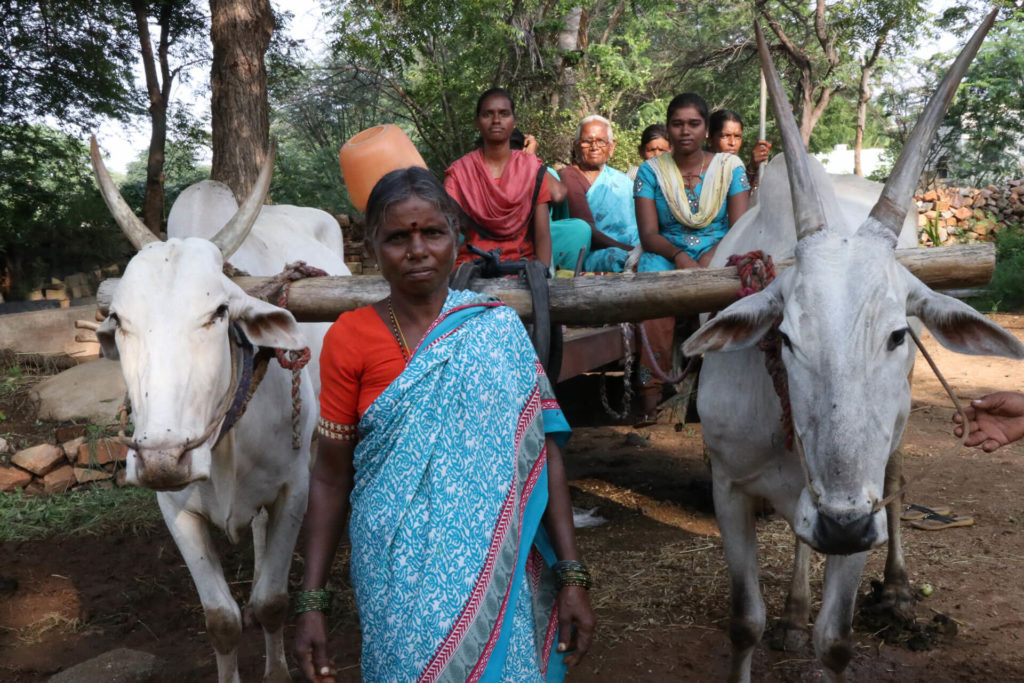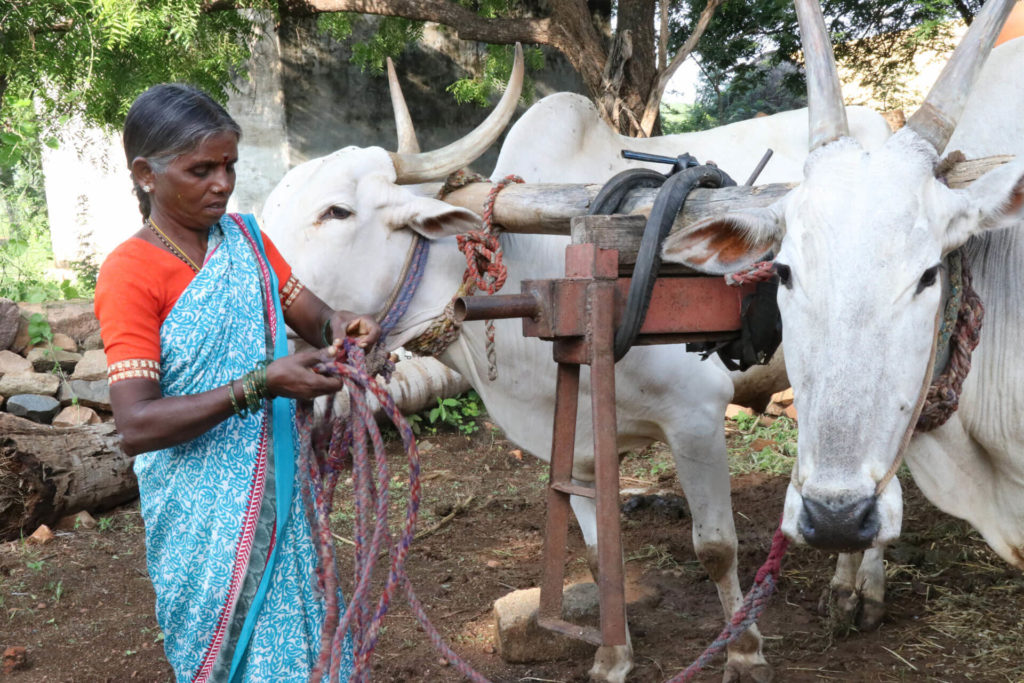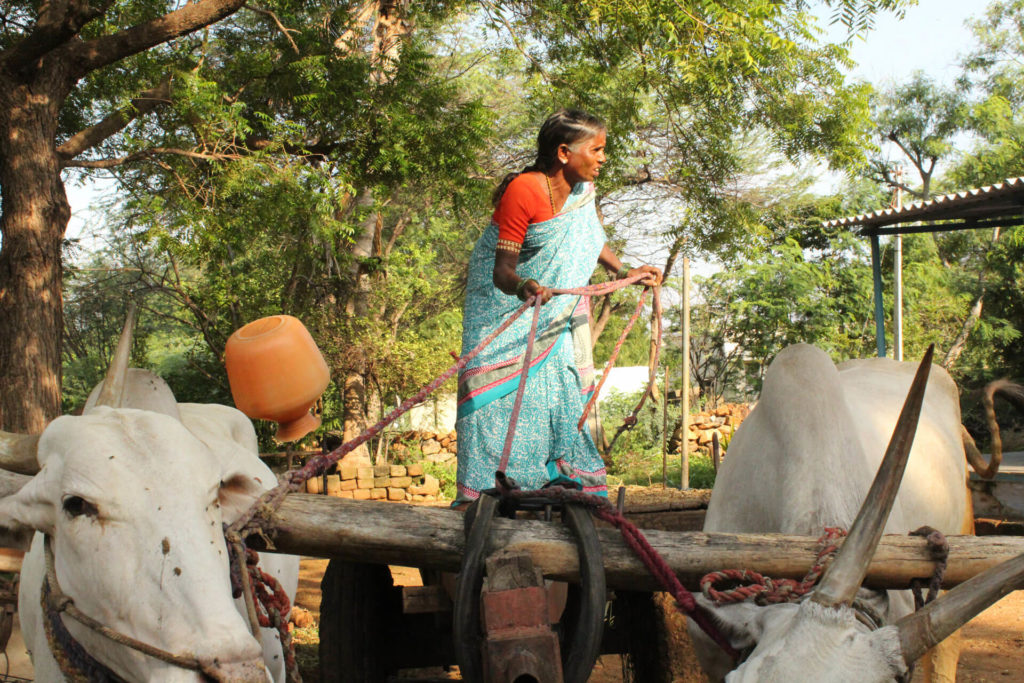Home > Blogs
Salamma: From day laborer to landowner
At the age of eight, Salamma started working in the fields of landowners to support her family. Today she owns two hectares of land and is the only woman in her village who drives her own ox cart.
” Being an owner gives me pride and confidence, ” says Salamma while driving her ox cart early in the morning. She is in her sixties and lives with her husband in Mamipalli, a small village in Anantapur region, India. A mother of 2 daughters and 2 sons, she has not only dedicated her life to her family but also to toil hard on lands. She is the proud owner of 5 acres and 2 buffaloes.
Salamma had to drop out of school when she was 8 years old to work as a day laborer in the fields to help her family. She was the fourth of eight children. Only two of her younger brothers, both boys, went to school up to tenth grade. ” I was one of the older ones and had no choice, ” she recalls.
After her marriage, she kept working on the land and taking care of the family. In the 1980s, she joined one of the Rural Development Trust’s women’s sanghams(self-help groups) and things started to change in her life. After a few years, she received microcredit through the Foundation’s Women’s Development Fund to buy a buffalo. “We have to diversify our livelihoods so as to not depend on rains alone,” she remarks.
You were only 8 years old when you started working. How was your family’s situation at that time?
We struggled to survive. My father worked for a landowner, but what he earned wasn’t enough to feed us. I liked going to school, but my parents couldn’t afford it, so I started working.
I got married when I was 16 and continued to work in the fields. I have worked as a farmer all my life. I have a lot of experience and I’m not afraid to go to the field alone. I am the only woman in the village who drives an ox cart! I learned that very fast, there was no other option.
Can you tell us something about your everyday life?
I get up at 4 a.m. every morning. I cook, clean the house, take care of the animals and pick up the workers in my ox cart. Then we go to the field.
My husband and I work together with the otherer workers in the field. I turn on the water pump and check the drip irrigation system … There is always something to do at home and in the fields.
Is there anything in your life you regret?
I never had the opportunity to study. My parents always made it clear to us that first you have to have something to eat and everything else comes after.
However, educated people enjoy a lot of recognition in society. That is why, in another life, I would like to study and have a better future. We are trapped without education.
Salamma with the ox cart
What is the worst and best thing about being a farmer?
The heat and physical work are the worst. I’ve done that all my life and now that I’m getting older, I feel it. Also, there is not schedule when you work in the field.
The best thing is the confidence that I have as the owner of two hectares of land and an ox cart. I’m not afraid of men. I owe this in part to the support that I received in the women’s Sangham. Joining other women, sharing problems and joys gives you the strength to overcome all problems! It is very important form women to go out of the house, to work and to have their own income. We have to be independent.
Text: Aina Valldaura, adapted by Vicente Ferrer Foundation USA

Meehanski: “My disability hasn’t stopped me from making my dreams come true”
09/29/2022Meehanski defines herself as a feisty and stubborn woman, but above all independent and ha...
READ MORE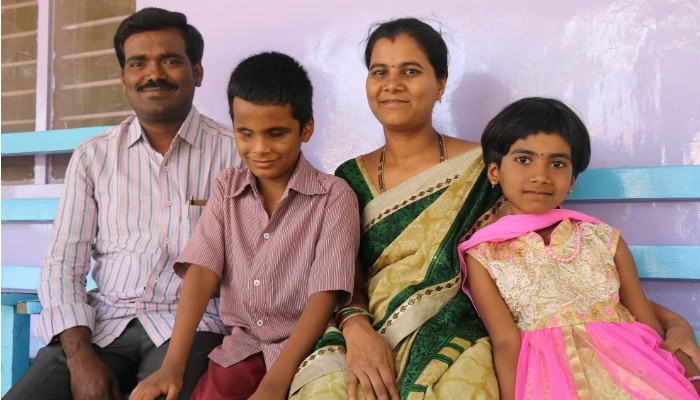
Visually impaired student becomes a Telugu singing star
09/28/2022“When I sing, I feel invincible,” says Sreesanth Naik. At the young age of 10, he has ...
READ MORE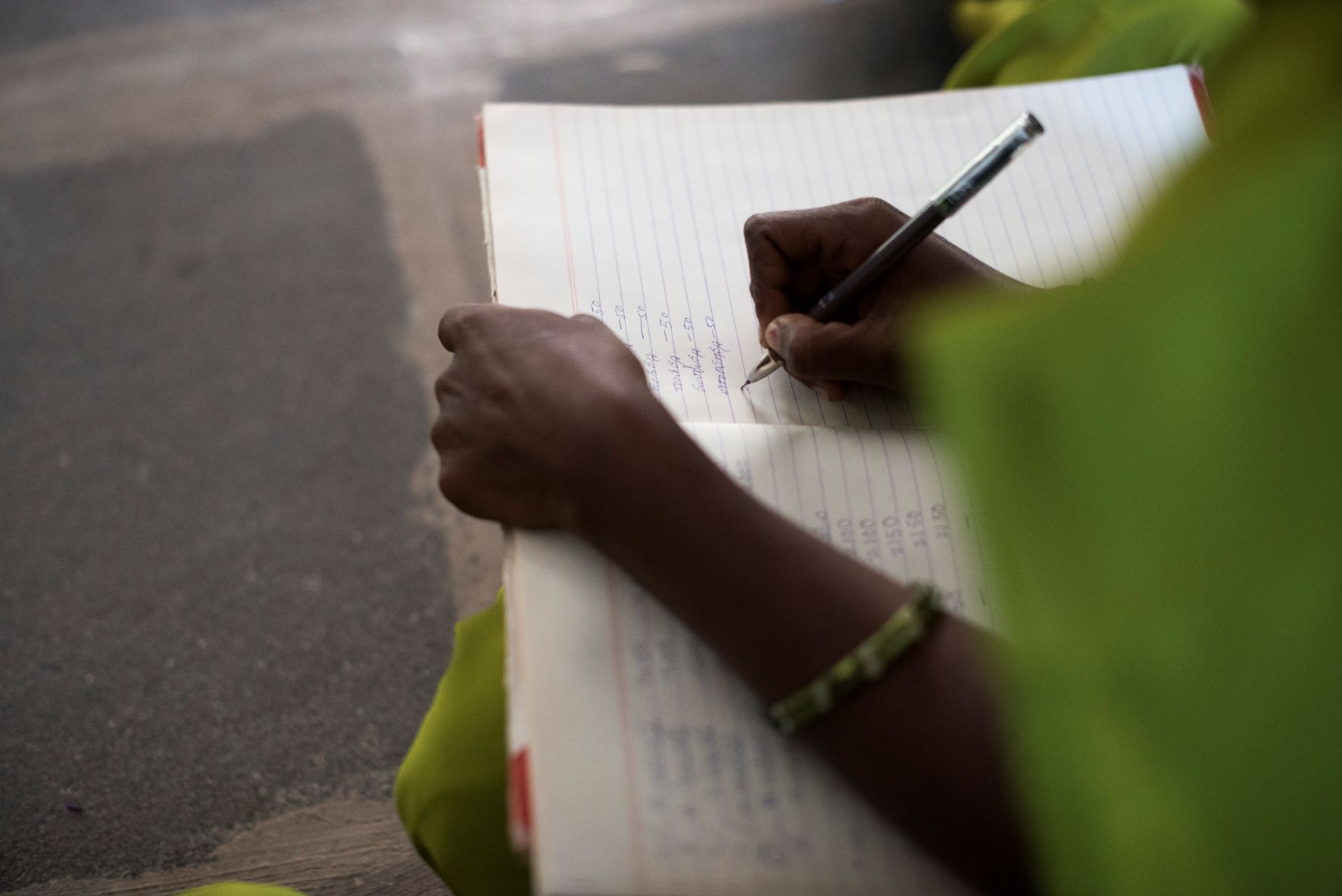
Malleswari’s Story: How Education Helps Breaks the Cycle of Poverty
12/22/2021Born in a village located in the deep forest of Nallamala in the Indian state of Andhra Pr...
READ MORESupport our work to help individuals and communities affected by COVID-19
Would you like to know how we use the funds?LEARN MORE
 July 27, 2019
July 27, 2019